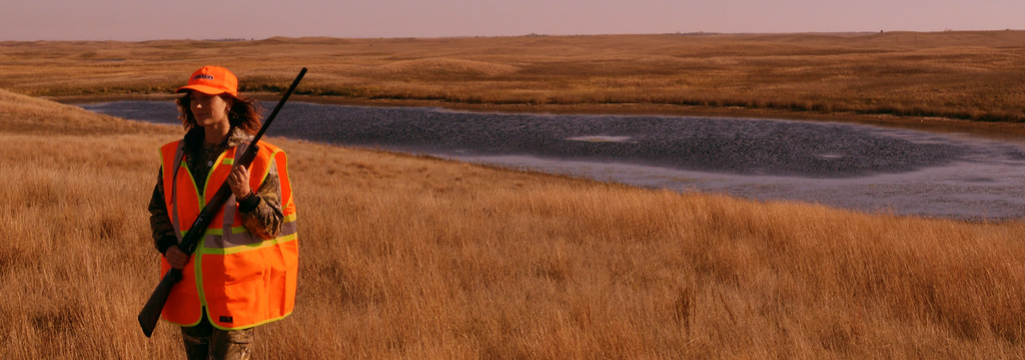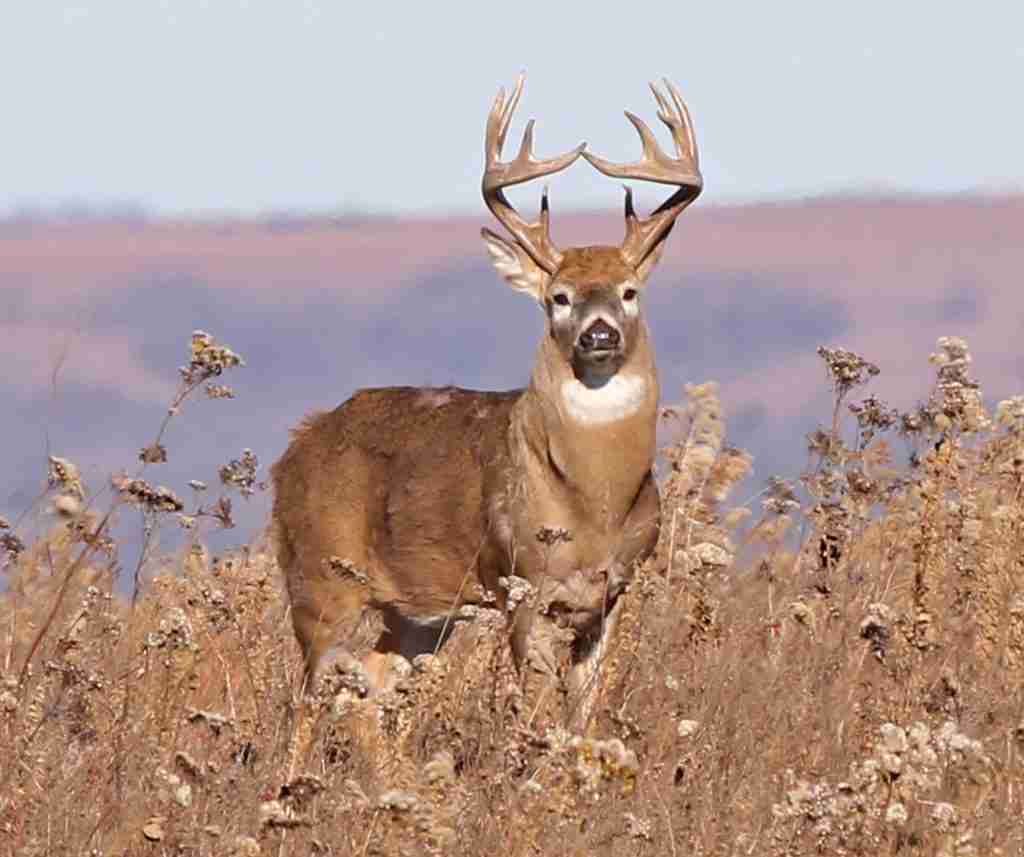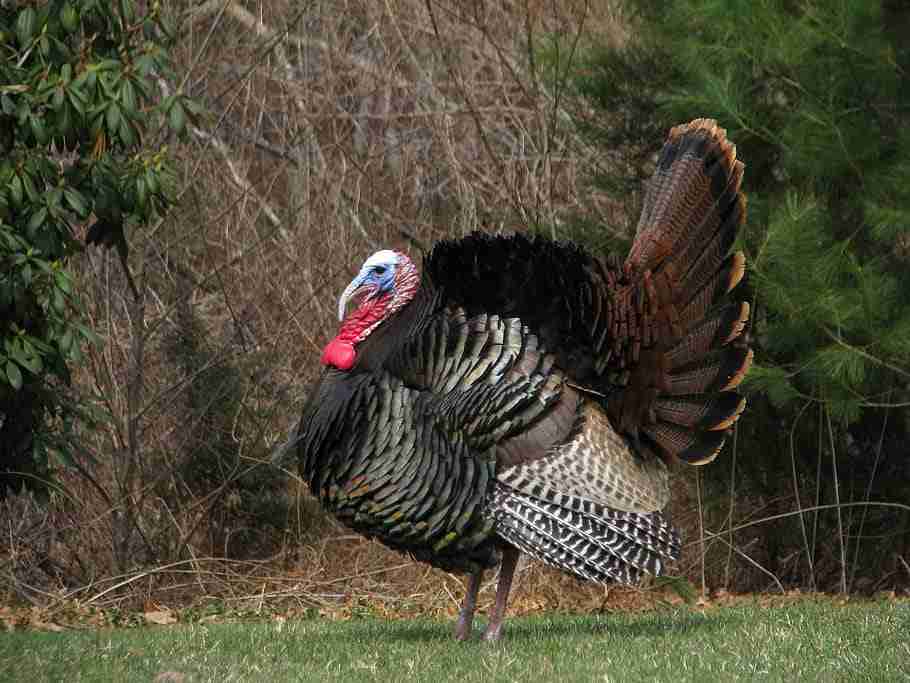Last updated: 8th May 2023

Hunting in Virginia is a cherished tradition, offering diverse habitats and abundant wildlife. Virginia stands out for its rich history, landscapes, and variety of game species.
Unlike other states, Virginia takes pride in effective wildlife management practices. Managers ensure healthy game populations with proper hunting regulations.
This article provides valuable information to help you navigate VA’s hunting opportunities. All in a single click!
Table of Contents
Virginia Hunting Seasons
Hunters say Virginia’s hunting season is productive and enjoyable. The Virginia Department of Wildlife Resources (DWR) handles hunting seasons. They are responsible for sustaining the wildlife population.
| White-Tailed Deer HuntingElk Hunting | Archery Season: Early October to early November Late Archery Season: Early December to early January Muzzleloader Season: Early to mid-November Late Muzzleloader Season: Mid-December to early January General Season: Mid-November to early January |
| Black Bear Hunting | Archery Season: October to mid-November Muzzleloader Season: Mid-November for a week Early Firearm Season: Weekends of late September General Season: October to early January |
| Elk Hunting | Mid-October for a week. |
| Wild Turkey Hunting | Fall Archery Season: October to mid-November Fall General Season: Late October to late January Spring General Season: Early April to mid-May |
| Swans Hunting *special permit | Mid-November to late January |
| Waterfowl Hunting | Ducks: Mid-September to early February Canada Goose: Early to late September & Mid-November to late January White-Fronted Goose: Mid-November to late January |
| Migratory Bird Hunting | Dove: Early September to late January Quail and Pheasant: Mid-November to late January |
| Small Game Hunting | Bobcat: Early October to late February Coyote: Year-round Fox: Early September to late January Squirrel: Early September to late February Rabbits: Early November to late February |
Always consult the DWR for the most up-to-date information on hunting seasons.
Popular Game Hunting in Virginia
Virginia is a popular destination for hunting enthusiasts. Its diverse landscapes and habitats allow the game species to have healthy environments.
The state offers a wide range of hunting experiences. Here’s an overview of some popular hunting activities in Virginia:
Deer Hunting

https://commons.wikimedia.org/wiki/File:Whitetail_Deer_%2850606920378%29.jpg
White-tailed deer hunting is a popular activity in Virginia. The species’ growing population attracts both residents and non-residents alike.
With a healthy deer population, Virginia provides ample deer hunting opportunities. Hunters can hunt this sought-after species using various methods.
Hunter methods include archery, muzzleloaders, and modern firearms. Each hunting method has its specific season and regulations.
To hunt deer in Virginia, hunters must have a Deer/Turkey License on top of their state hunter’s license. Deer/Turkey licenses are available for all hunters, regardless of residency status.
- Adult-Resident Deer/Turkey License: $23.00
- Youth-Resident Deer/Turkey License: $8.50
- Non-resident Deer/Turkey License: $86.00
- Youth-Non-resident Deer/Turkey License: $16.00
Earn-A-Buck Program
The Earn-A-Buck (EAB) program is essential in Virginia’s deer management efforts. The program focuses on antlerless deer harvest to maintain a healthy deer population. It also addresses the issues caused by high deer densities in certain regions.
The program is effective in select counties with high deer populations. The DWR identifies these counties based on the need for population control.
Earn-A-Buck program’s primary objectives are:
- Population control: Harvesting antlerless female deer (does), is crucial for population control. This measure will lead to a sustainable and healthy deer population.
- Balanced sex ratio: The harvest of antlerless deer promotes a more balanced sex ratio. A level sex ratio contributes to more natural breeding behavior.
- Quality deer management: The EAB promotes the harvest of older, more mature bucks. This allows younger deer to have healthy and quality development. It reduces the pressure on younger bucks by harvesting requiring antlerless deer first.
Black Bear Hunting

https://www.flickr.com/photos/yellowstonenps/14893785171
Virginia’s sizable and well-managed black bear makes it a good state for hunting. The diverse habitats, including mountains and forests, offer excellent opportunities for daring hunters.
Virginia has designated hunting seasons for black bears depending on weapon used. It includes archery, muzzleloader, and general firearms. Regulating these seasons ensures sustainable and ethical harvesting.
Like deer hunting, black bear hunters must have a Black Bear-specific License for a legal hunt.
- Adult-Resident Bear License: $21.00
- Youth-Resident Bear License: $6.50
- Non-resident Bear License: $151.00
Black bear hunters can hunt on both public and private lands in Virginia. Public lands include state forests, national forests, and wildlife management areas. Public hunting promotes hassle-less access to hunting location while enjoying the great outdoors.
Meanwhile, private land hunting requires permission from the landowner to hunt.
Wild Turkey Hunting

Virginia is famous for its excellent wild turkey hunting opportunities.
The state has seen consistent wild turkey harvests in recent years. It has annual harvest numbers that exceed 15,000 to 20,000 birds. The state’s conservation efforts contributed to a stable and healthy turkey population.
For a legal turkey hunt in VA, hunters must have Deer/Turkey License on top of their state hunting license. The state offers different types of Deer/Turkey licenses to cater to every hunter.
- Adult-Resident Deer/Turkey License: $23.00
- Youth-Resident Deer/Turkey License: $8.50
- Non-resident Deer/Turkey License: $86.00
- Youth-Non-resident Deer/Turkey License: $16.00
After a successful turkey hunting, hunters must tag their harvest immediately. Hunters should also report their harvest to the DWR. Harvest reporting helps in monitoring the population of the species.
Waterfowl Hunting

https://www.pxfuel.com/en/free-photo-xsvjd
Waterfowl hunting in Virginia is a popular outdoor activity. Virginia boasts different landscapes like coastal bays, tidal marshes, rivers, and wetlands. And thanks to that, waterfowl species got an excellent living environment.
Virginia offers a wide range of waterfowl hunting. It has different species of ducks and geese waiting for hunters to feast on.
Aside from the state hunter’s license, waterfowlers must have these requirements.
- Migratory Waterfowl Conservation Stamp: $10.00 (resident and non-resident hunters)
- Federal Duck Stamp: $28.00 (resident and non-resident hunters)
- Harvest Information Program (HIP): Free registration
The DWR collaborates with federal agencies and conservation in regulating waterfowl hunting. It includes monitoring waterfowl populations and maintaining and improving wetland habitats.
Controlled Hunting Virginia
Due to its small population, the state is strict on elk management. Elk hunting and management focus on two aspects:
- Species’ population growth
- Maintaining a sustainable balance between the species’ population and their habitat.
Here are the two species under controlled hunt in VA:
Elk Hunting

https://zoonewyork.org/roosevelt-elk
The state has a small but growing elk population. Hunters can spot elk in the southwestern region (Buchanan, Dickenson, and Wise counties).
Virginia has implemented limited elk hunting to ensure the elk population’s sustainability. Meaning DWR only allotted a limited number of permits available for hunters. These hunting permits go through a lottery system for distribution.
Interested elk hunters must apply for the elk hunting permit lottery. The application period runs from February to March. Meanwhile, the announcement of selected hunters will happen at the end of May.
If successful on application, hunters must buy a special elk hunting license. The price varies depending on your residency status:
- Resident Hunters: $40.00
- Non-resident Hunters: $400.00
Note that this special license is different from your valid license for hunting.
Swan Hunting

https://www.pxfuel.com/en/free-photo-oszdy
Virginia’s swan hunting provides lucky hunters with a limited but unique experience.
VA’s Migratory Bird Treaty Act protects the swan population. Federal law regulates hunting and habitat destruction to conserve migratory bird species.
The Tundra Swan is the only swan species hunted in the state. Hence, the state is strict with swan hunting in Virginia. It issues a limited number of permits each year for a sustainable population.
Interested swan hunters must apply swan permit lottery. The application runs until late September.
Hunters can only hunt swans in specific areas within Virginia. These areas include portions of the coastal and tidewater regions.
Where to go when hunting in Virginia
Virginia offers diverse habitats and a variety of game species. That makes the state a great destination for hunting enthusiasts. There are many areas throughout the state that provide excellent hunting opportunities. But here are some of the best locations:
George Washington and Jefferson National Forests
This combined national forest is like a wide playground for Virginia hunters. It spans over 1.8 million acres, making it the largest public land hunting area in the Eastern US.
George Washington and Jefferson National Forests offer diverse habitats to grow species’ populations. This joint area has hardwood, meadows, and wetlands for hunters to chase around.
The area supports a healthy population of almost all the available game species. Here are the species to hunt in these national forests:
- White-tailed deer
- Black Bear
- Wild Turkey
- Small Games (rabbits, coyotes, squirrels)
When hunting in this forest, you must familiarize yourself with the specific regulations. There might also be particular rules for hunting on national forest land. Be prepared to hike or camp in remote areas.
Practice Leave No Trace principles in George to preserve the place’s ecological integrity.
Appomattox-Buckingham State Forest
This is a 19,808-acre forest managed by the state’s Department of Forestry. The forest spans both Appomattox and Buckingham Counties.
Due to its diverse landscape, hunters are in for different game species in this forest. The area’s habitat focuses on forest animals like deer, black bears, and furbearers. Although limited, there are still chances to hunt waterfowl and turkey in this forest.
State forest requires hunters to wear blaze-orange clothing for visibility.
Amelia Wildlife Management Area
This WMA in Virginia spans over 2,217 acres in Amelia Country. This area is under the management of DWR to provide balanced hunting opportunities.
The area has a diverse landscape for hunters to hunt the animals they’re after. This management area supports a thriving population of deer and turkey. Squirrels and other small game opportunities are also available.
Chickahominy Wildlife Management Area
Hunting in the Chickahominy WMA is popular among outdoor enthusiasts. Thanks to its 5,217-acre property, hunters can spot a vast selection of game species.
Some of the game species that hunters can hunt at Chickahominy WMA include:
- Deer
- Turkeys
- Squirrels
- Rabbits
- Doves
- Waterfowl (ducks and geese)
Chickahominy WMA spans Charles City and New Kent counties. It is approximately 35 miles southeast of Richmond, Virginia. Visitors can use State Route 623 (Barnetts Road) and State Route 609 (Sandy Point Road) to access the WMA.
Goshen and Little North Mountain Wildlife Management Area
This WMA is a large, 33,697-acre property managed by the DWR. The WMA includes two separate parcels:
- Goshen, a 27,308-acre area
- Little North Mountain, a 6,389-acre site.
The area provides hunting opportunities for deer, bears, turkeys, and grouse. Opportunities for squirrels and rabbits are also available in limited habitats.
Much of the hunting requires walking in, sometimes over rough terrain. Wildlife management activities focus on accessible areas. It’s through creating habitats and planting soft mast producers for food sources.
Mattaponi Wildlife Management Area
Deer, turkey, and squirrel hunting can be very productive in Mattaponi WMA. Well, no doubt, considering their population and the area’s diverse habitats.
Hunters can pursue deer and wild turkeys in its hardwood and pine forests. Meanwhile, squirrels live in both forested and open areas.
Black bear hunting popularity has grown in this area in recent years. Hunters can expect more opportunities to pursue this species as their population furthers.
Big Woods State Forest
Big Woods State Forest is a picturesque forest reserve. It spans over 2,208 acres, offering various recreational opportunities for outdoor enthusiasts.
VA Department of Forestry only allows controlled hunting in this state forest. It provides opportunities for white-tailed deer, wild turkey, and small game.
Valid Hunting License
All Virginia hunters must carry their hunting licenses with them at all times. Also, those who wish to hunt in VA must buy a hunting license appropriate for their category.
All hunters born on or after January 1, 1975, must complete a hunter education course. This rule needs before getting a license.
Here are the different types of hunting licenses Virginia offers:
Resident Hunting License
| Adult-Resident | 1-year: $23.00 2-year: $44.00 3-year: $65.00 4-year: $86.00 |
| Youth-Resident(Age: 12-15) | $8.50 |
| Senior-Resident(Age: 65+) | $9.00 |
| Apprentice-Resident | $11.00 |
Non-resident Hunting License
| Adult-Nonresident | 3-day: $60.00 1-year: $111.00 |
| Youth-Nonresident | Ages 12-15: $16.00 Ages under 12: $13.00 |
| Apprentice-Resident | $21.00 |
Bag Limits
Bag limits refer to the number of specific game animals hunters can harvest in a season or daily.
Setting a bag limit helps maintain sustainable and healthy wildlife populations. It regulates the number of animals that hunters can take from the ecosystem.
| Deer | Two (2) deer per day. Note: Statewide deer harvest limit varies from EAB-regulated countries. |
| Bear Bear | One (1) per season. |
| Wild Turkey | Spring: One (1) bearded turkey daily. Three (3) bearded turkeys per season. Fall: One (1) per season. |
| Squirrel | Six (6) squirrels per day. |
| Rabbit | Six (6) rabbits per day |
Conclusion
All in all, hunting in Virginia can be as exciting as other hunting in other US states. It offers ample hunting opportunities while ensuring sustainable hunting for everyone.
